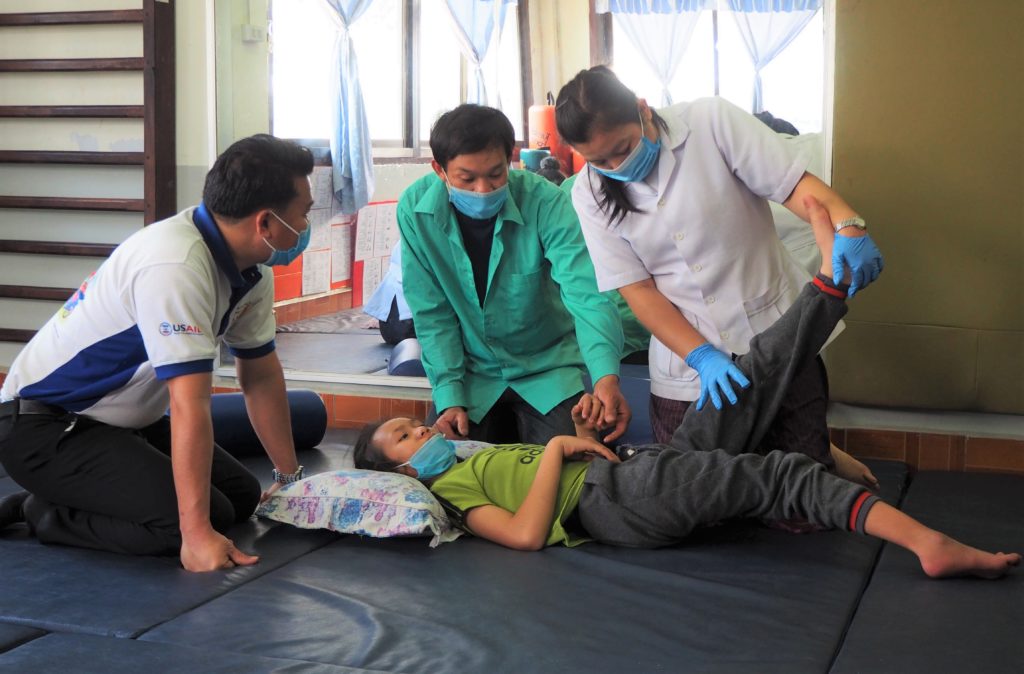Achieving and sustaining optimal functioning for people with health conditions is one of the preconditions for enjoying full and effective participation in society on an equal basis with others. The USAID Okard Activity contributes, together with the Ministry of Health and in line with World Health Organization’s Rehabilitation 2030 initiative to operationalize the National Rehabilitation Medicine strategy aiming at increasing the availability and quality of rehabilitation and appropriate assistive products along the continuum of care.
USAID Okard creates training opportunities for health professionals on rehabilitation by providing scholarships for doctors in rehabilitation medicine and physical, occupational, and speech-language therapy, as well as supporting the Center for Medical Rehabilitation in Vientiane to develop a continuous professional development training center for health professionals on rehabilitation. The WHO Mental Health Gap Action Programme (mhGAP) training package is delivered to doctors and nurses from provincial and district hospitals and nursing schools.
Access to quality and affordable assistive products is crucial to compensate difficulties in functioning and to achieve optimal level of functioning. USAID Okard works with the Ministry of Health and Center for Medical Rehabilitation to expand the availability of a diverse range of assistive products from central until community level.
USAID Okard also aims to improve the user experience of persons with disabilities and their households when they seek healthcare or rehabilitation. Persons with disabilities often face negative attitudes, discrimination, and lack of knowledge about their health conditions and experiences when they go to the doctor. These challenges can be even more severe for women, ethnic minorities, and other less advantaged groups. In order to achieve equal access to health services, USAID Okard uses social behavior change communication and works directly with health service providers in Xieng Khouang and Savannakhet to promote and engage in a dialogue on person-centered care practices. The ultimate goal is that people are treated with respect and compassion and included in decisions about their care, leading to better health outcomes.
Finally, facilitators from civil society organizations in Xieng Khouang and Savannakhet provinces implement the Community Based Inclusive Development (CBID) model at community level. CBID model aims at on the one hand, engage in a community dialogue to remove barriers so persons with disabilities are effectively referred to and access the improved health and rehabilitation systems and on the other hand, provide home-based support to optimize functioning in daily live activities and advise accessibility modifications to participate more in the household and community life.
Click here to learn more about CBID.
Partners:
Ministry of Health: Department of Healthcare and Rehabilitation and the Center for Medical Rehabilitation

